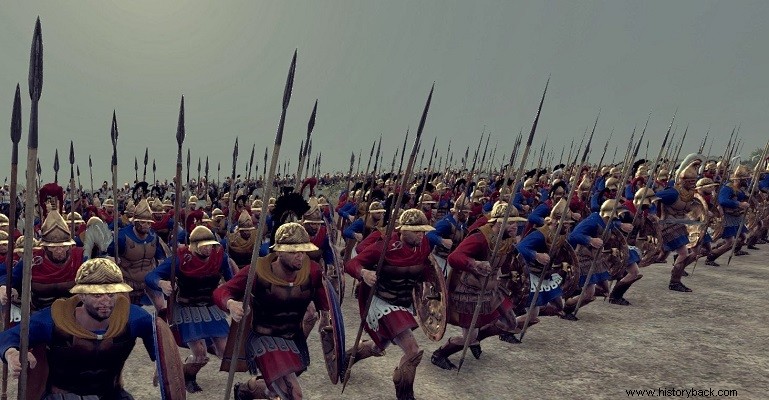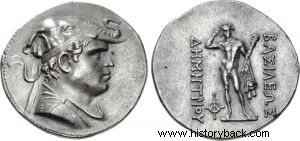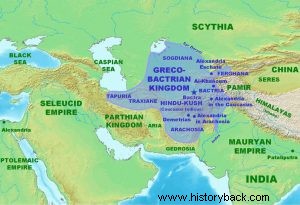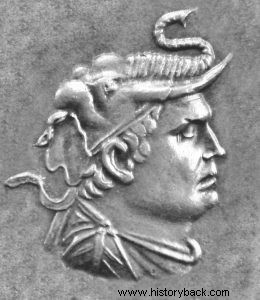
Dimitrios is an exotic, so to speak, personality whose actions, although completely historically documented, also passed into the zone of legend of the eastern peoples. Dharmamita of the Yonas or Yavanas, as the Greeks were called, left behind a reputation that still accompanies the Greeks in these parts of the world, as the founder of the "Yavana Age", the age of the Greeks!
Demetrius was the son of Euthydemus, the self-proclaimed king of the eastern part of the Seleucid empire. Euthydemos was named king of Bactria coming into conflict with Antiochus III of the Seleucids. He was even defeated by the Seleucid king in the Battle of the Areios River .
But he faced the Seleucid siege of his capital, Bactra, for three years, and finally won recognition of his royal title from his rival. The main negotiator of the peace treaty was Dimitrios, although he was only 16 years old at the time. In fact, Antiochus was so impressed by the young prince that he offered him his daughter's hand in marriage, reports the historian Polybius.
Euthydemos was succeeded on the throne by his son Dimitrios at the age of about 22. After struggling for years to develop his state, Demetrius, taking advantage of the fall of the Maurya dynasty in India by a usurping general, decided to conquer the country. The Mauryan kings were allies of the Greeks and this was a good pretext for Demetrius.
Demetrius started the invasion from Arachosia , south of the Indo-Caucasus (Hindoo Kush), in today's Afghanistan, where many Greeks lived since the passage of Alexander the Great and after. The area belonged to the Indians. It seems that Demetrius after the conquest founded the city of Demetriada there where he settled Greeks. Both the ancient sources and the archaeological finds are irrefutable witnesses of the Greek presence there and of the passage of Demetrius.
Some sources want Demetrius to have advanced as far as Patna in eastern India, south of Nepal. "Those who were after Alexander reached the Ganges and Pataliputra (Patna)," reports Strabo. Indian sources also mention the invasion of Demetrius. Demetrius ruled what is now Pakistan, Afghanistan and much of India.
He never lost a battle and for that he received from his subjects the title of "invincible king". His work in India was continued for a long time by his successors. Demetrius is believed to have died around 180 BC. However, no source says anything about it precisely. Not without reason, a modern British historian describes Demetrius as the Enigma king of Asian history.

Tetradrachm of King Demetrius. The king is depicted wearing an elephant-shaped helmet.


King Demetrius the Victorious.
